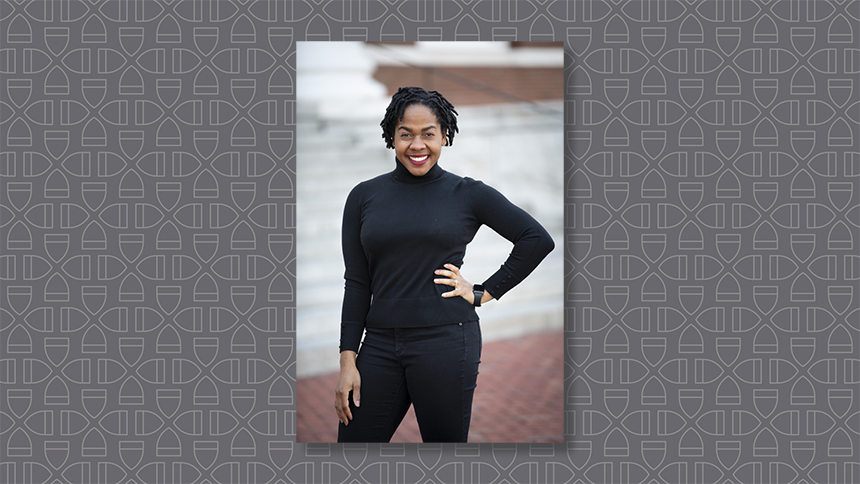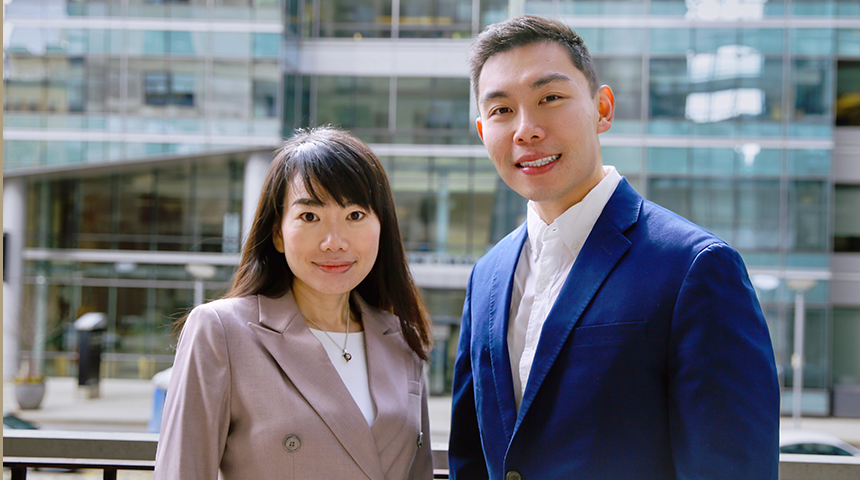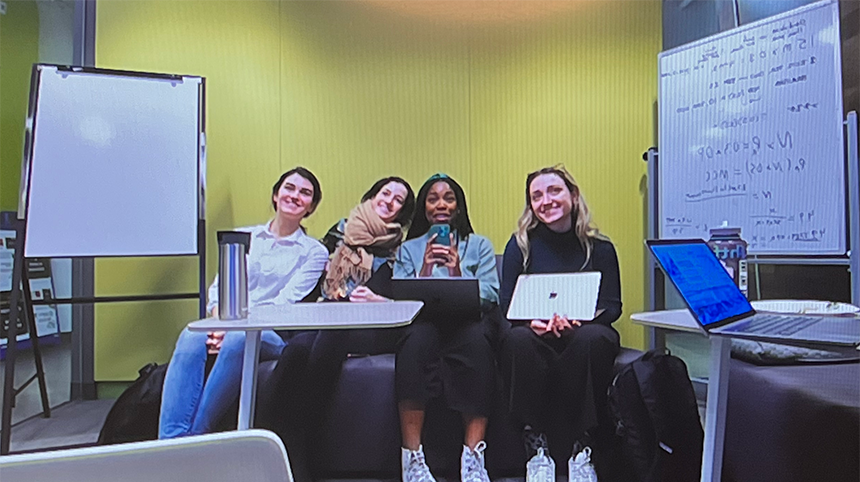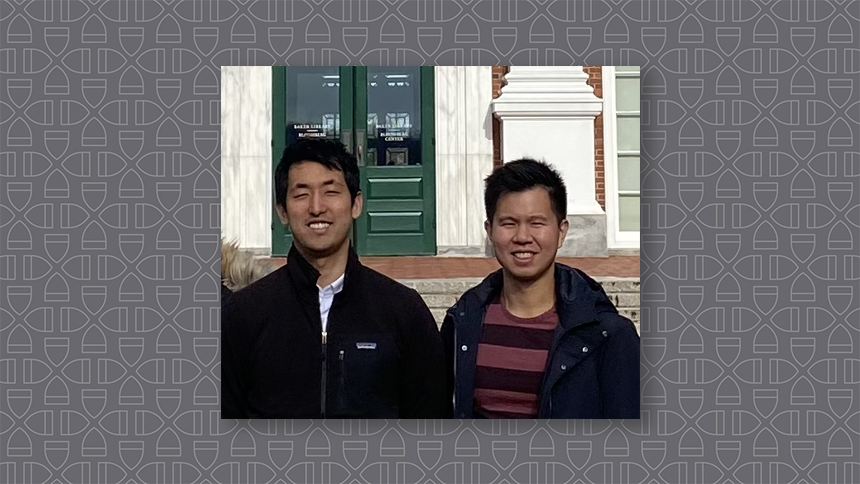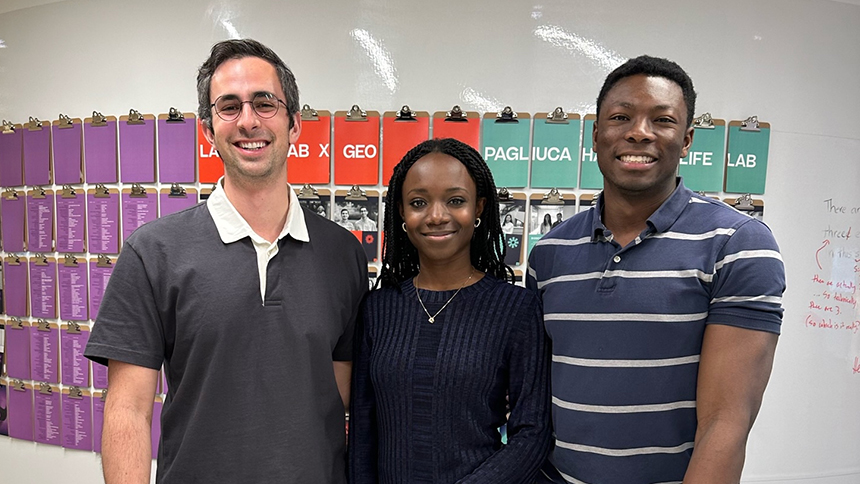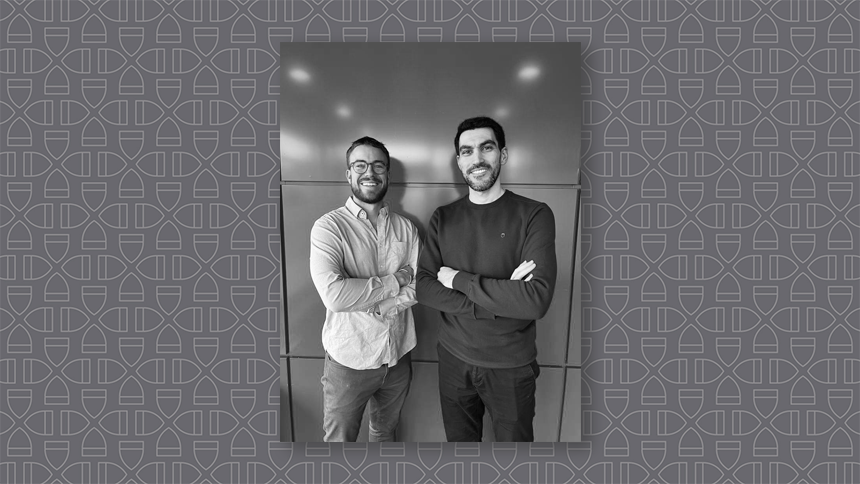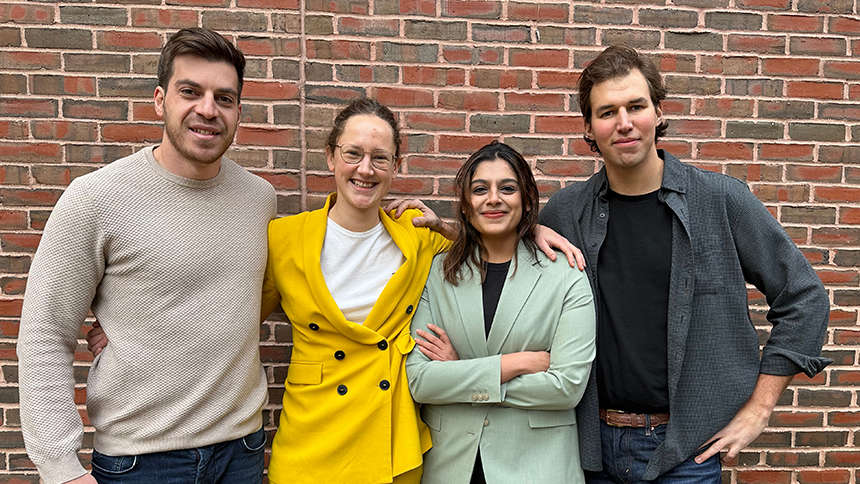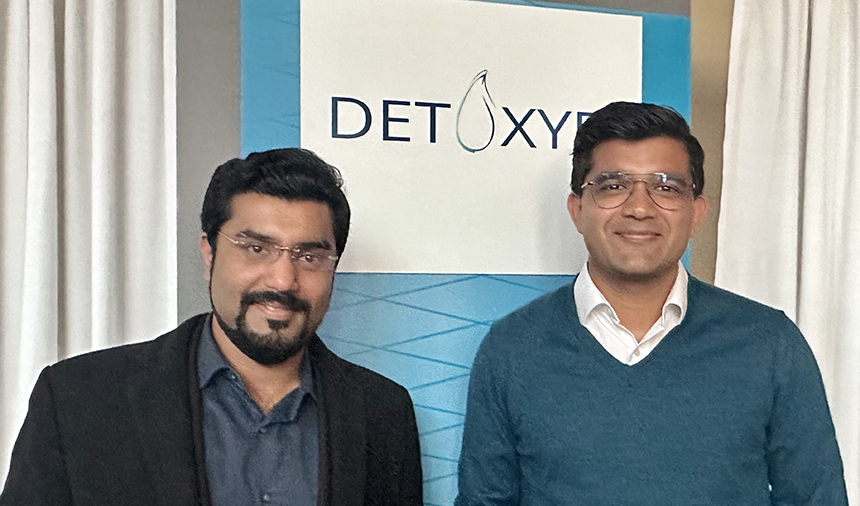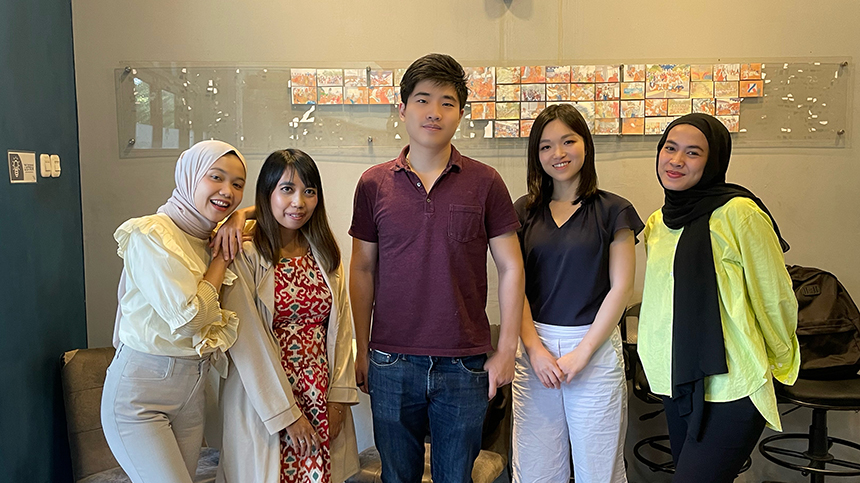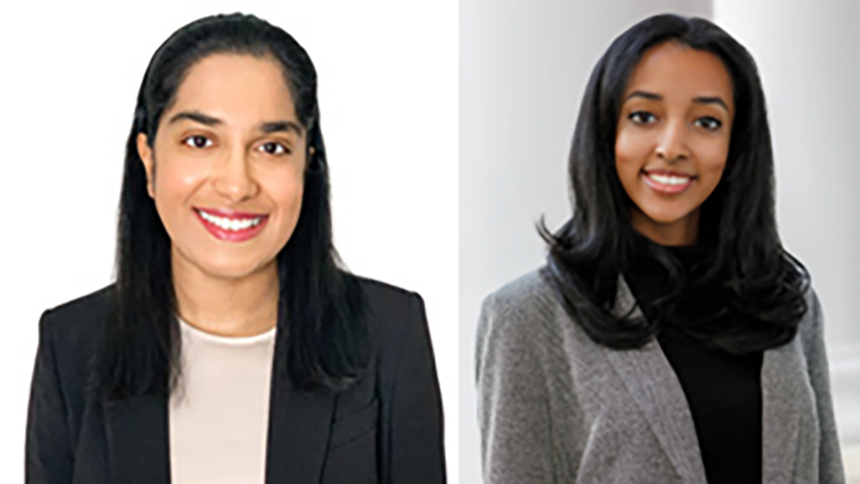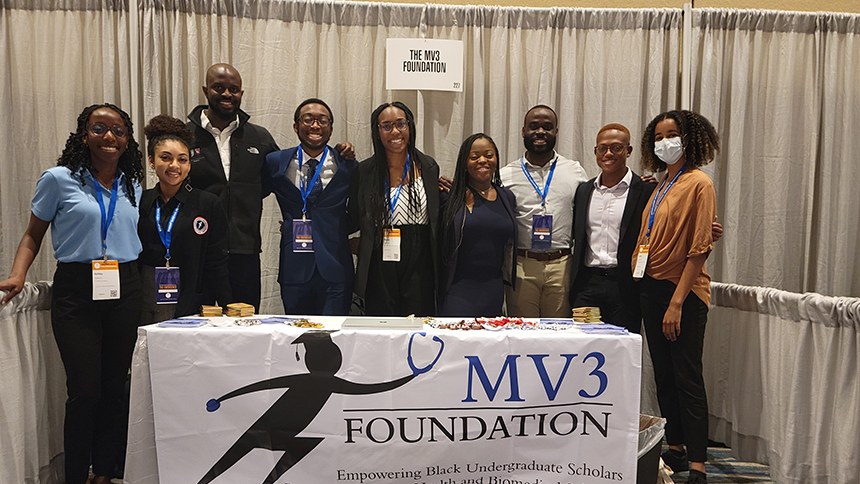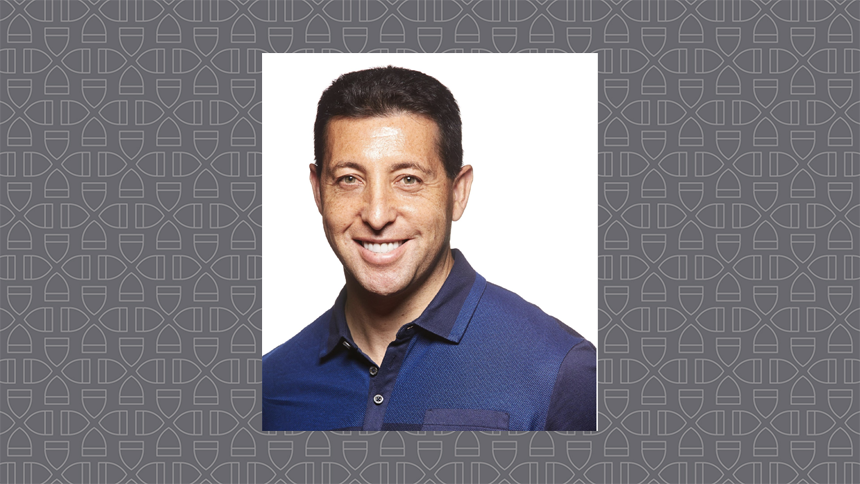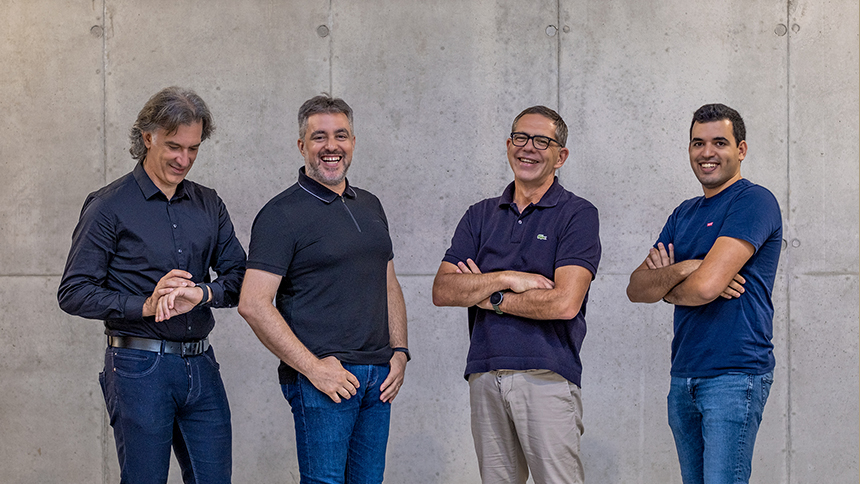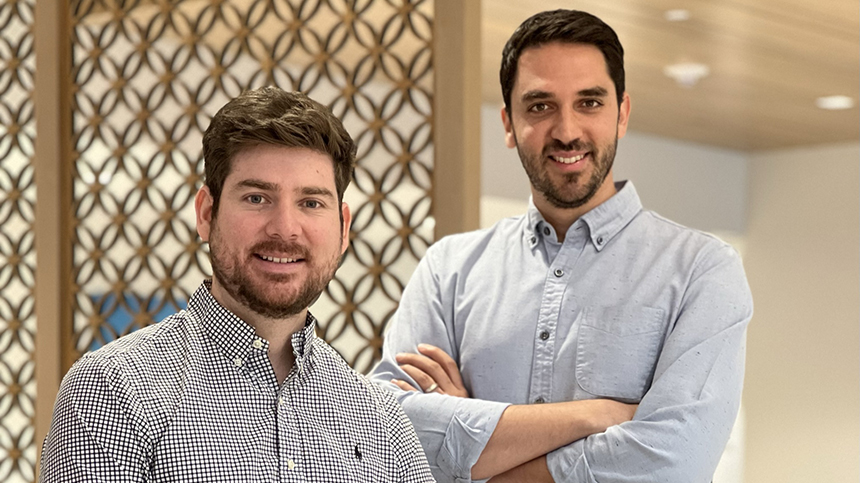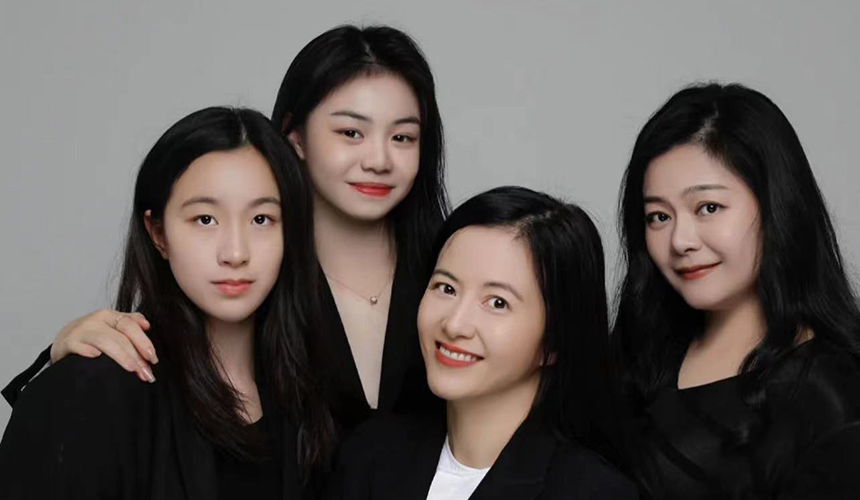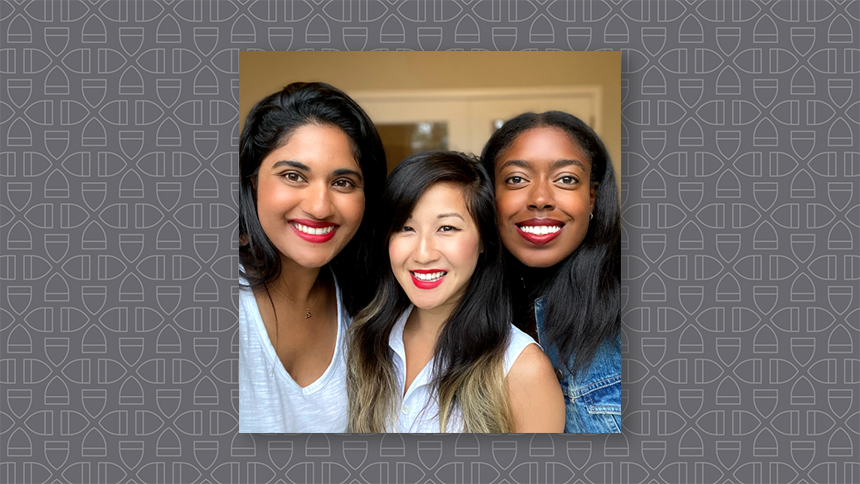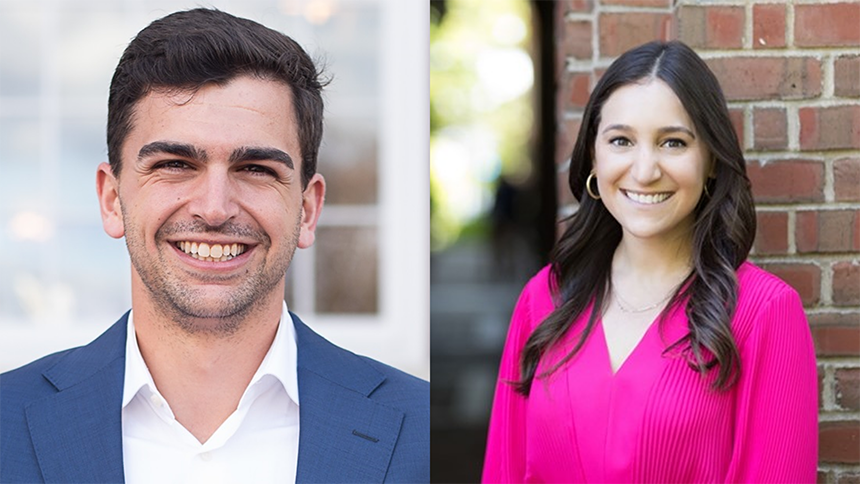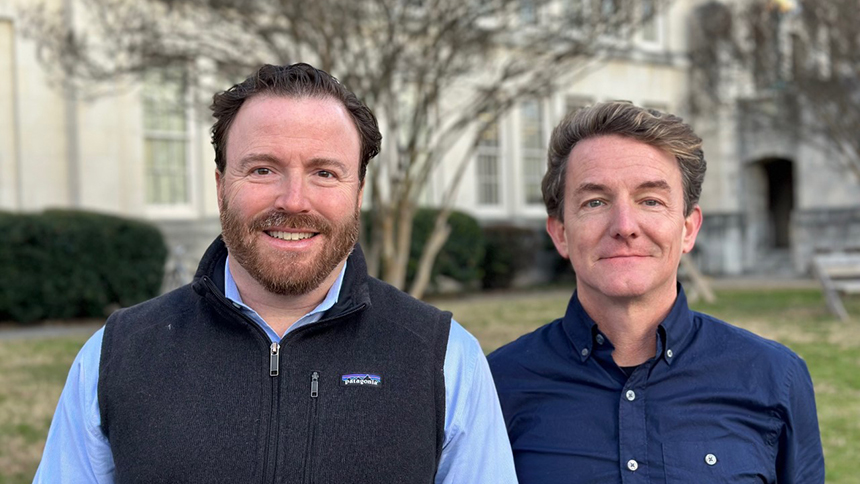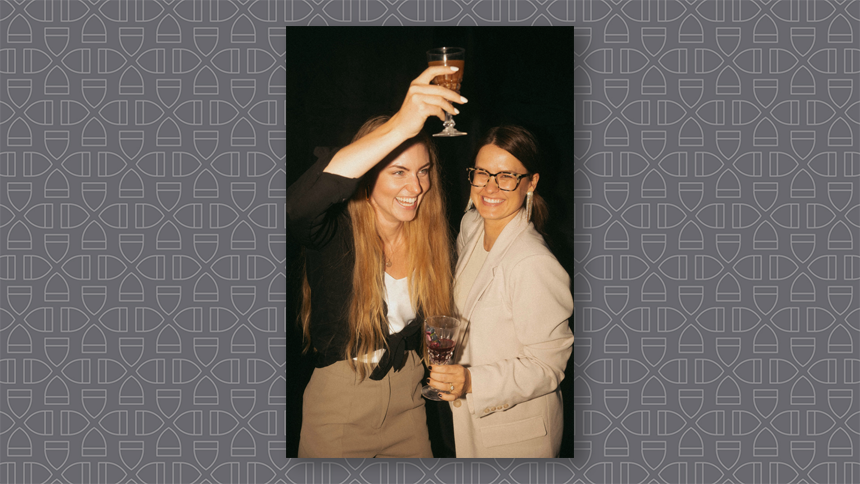Harvard Business School Announces New Venture Competition Finalists in Student Business, Social Enterprise, and Alumni Tracks
|
BOSTON—On Saturday, March 4, 2023, Harvard Business School (HBS) student-led teams pitched their startups to 88 judges in the first round of the HBS 2023 New Venture Competition (NVC) Business Track, managed by the School's Rock Center for Entrepreneurship. Sixteen semifinalist teams were selected to move on to the next round, and from that group, eight finalists were invited to pitch at the March 30 finale on the HBS campus in Boston. Those Business Track finalists will join another four from the Social Enterprise Track, who were selected from a pool of 57 teams by eight preliminary round judges and 20 semifinal judges. The Social Enterprise Track, managed by the School’s Social Enterprise Initiative (SEI), is for eligible graduate students across Harvard University with new ventures that drive social change using nonprofit, for-profit, or hybrid models. At the competition’s finale, student finalists will compete for a share of $225,000 in cash prizes to fund their startups. The School will offer a $75,000 Grand Prize, a $25,000 Runner-Up Prize, two $5,000 Audience Awards, three $5,000 Touch Tech Venture Awards (for Most Promising Climate Tech, Pharmaceutical, and Deep Tech Ventures), in addition to in-kind services. More than 200 judges from such fields as venture capital, private equity, law, accounting, philanthropy, impact investing, and social entrepreneurship vigorously review the new ventures in each round of judging. A large audience from Harvard Business School, the Greater Boston community, and beyond is expected at the New Venture Competition Finale in HBS’s Klarman Hall on March 30, when the winners in each track will be revealed. Separately, HBS Alumni were invited to participate in the Alumni New Venture Competition (aNVC). The 139 teams competed in eight regions around the world, where regional finalists were sent to the Global Finals round to compete for over $100,000 in cash and in-kind prizes. More than 100 judges participated. Winners will be announced at the Global Finale held virtually on March 23. Learn more about the New Venture Competition, including past winners, at hbs.edu/newventurecompetition and track Harvard Business School’s New Venture Competition on Twitter at #HBSNVC.
Student Business Track
Started in 1997, the Student Business Track is for HBS student-led ventures with economic returns that drive substantial market value. Past winners include Birchbox, CloudFlare, Rapid SOS, and Rent the Runway. This year’s Student Business Track finalist teams are: Chooz
The decades-long talent leak loses top underrepresented talent (women and minorities) at the beginning of their career. Chooz patches this leak and enables global companies to thrive. DoriVac DoriVac is working to solve huge unmet health needs in cancer treatment through the intersection of innovative life science approaches in cancer immunotherapy, nanomaterials engineering, and leadership spanning the medical, science, and business fields. “Our drive for translating innovative science comes from a deep family connection to the cancers we are trying to treat. Through extensive scientific literature review and experimentation in the lab, Claire developed a completely novel use of DNA origami technology, which has since proven incredibly promising for cancer immunotherapy. We are very excited to commercialize this technology so we can help patients.” – Kevin Emancipator Earthbond Earthbond is a platform that connects urban Nigerians with affordable financing for clean, reliable energy. It leverages group financing and carbon accounting to lower costs and risk in the energy transition of Nigeria's $14B fuel-based, off-grid generator market. “For as long as I can remember, Nigeria's energy grid has been unreliable. Speaking with customers across Lagos and Abuja this summer it was clear that clean, renewable energy offered the stability in price that customers wanted, but still held a barrier to entry due to cost. How can we accelerate financing to make it easier and safer for financiers to invest in Africa's energy transition, while also making it cheaper for the entire market?” – Chidalu Onyenso Fluency Fluency is an enterprise AI speaking coach for non-native English speakers. “As a non-native English speaker who arrived in the US at the age of 19, receiving accurate feedback on my English-speaking skills has been a continuous challenge. My co-founder's unfiltered feedback proved to be immensely helpful in improving my speaking skills. I am eager to replicate this experience with AI.” – Hiro Yamada Gigit.ai This mobile-first platform crowdsources data collection and data labeling, serving AI companies that need to collect text, video, and audio samples to train their ML model, and connects them to trained gig workers in developing markets. “In my previous job launching an AI-based telemedicine, I witnessed the challenges of localizing an AI model, specifically in data collection and labeling. Nowadays, with more AI models being open-sourced, what differentiates one company from another is the data the model is being trained on. I believe there is an opportunity to crowdsource data collection and data labeling effectively.” – Inez Wihardjo Halo Braid Halo Braid reduces braiding time from hours to minutes, saving time for clients, empowering Black salon owners to double or triple their business, and addressing the eight billion hours spent braiding hair each year. “During the lockdown in the UK, I tried braiding my own hair for the first time. It took four days. As a mechanical engineer, I was struck by how mechanical and repetitive the task was. I wondered why there was no device that could automate hair braiding and decided to invent one and bring more automation to the beauty industry.” – Yinka Ogunbiyi Pathways Pathways is a SaaS tool that enables companies in heavy industries to quantify and reduce emissions in their value chain. “Kritika, an architect, had faced the challenge of creating life-cycle assessments and wanted to make it easier for professionals, while the other co-founders had looked at carbon emission, from materials and the regulatory pressures faced by real estate developers. We followed the pain points, continued testing traction, and the idea formed from there.” - Vasilis Mantzios PolyoseBio Polyose Bio is working to divert food waste away from landfills by upcycling it into high-value sugar polymers using a combination of insects and microbial cell factories. “Toward the end of his postdoc at MIT, Amin began exploring ways to apply synthetic biology to tackle climate change and improve global sustainability. Biomanufacturing was a natural application since there is significant potential for engineered microbes to improve the cost and sustainability of current manufacturing processes and methods.” – Makari Krause
Student Social Enterprise Track
The Social Enterprise Track, launched in 2001, provides an opportunity for students to explore social entrepreneurship and test ideas for social innovation in a rigorous and supportive environment. The Social Enterprise Track brings together expert judges from the field to evaluate entries based on the idea, its potential for social value creation, and the likelihood of achieving success. Past winners include CashEx, Shelly Xu Design, and Mosaic. The 2023 Social Enterprise Track student finalist teams are: DetoXyFi DetoXyFi leverages waste wood and a proprietary chemical technology process to build affordable and highly effective drinking water filters for household and individual use. “All three co-founders have faced drinking water challenges in different shapes and forms. The idea stems from on-ground field research in India and testing across the US, Uganda, and Madagascar. We believe that drinking water filtration solutions can truly be scaled when agency lies with the end-consumer.” – Rinshon Benjamin Pando Pando democratizes credit for 150 million underbanked Indonesians by providing alternative loans and helping them build a credit history. “I was inspired to create Pando when one of my employees asked for a loan to rebuild his home that had burned down in a fire. Eighty percent of Indonesians live in self-built homes of sub-standard quality with partial roofs and hazardous electric circuits. This is because they can’t afford to buy houses from real estate developers and cannot get a mortgage from banks due to their lack of credit history.” – Claire Wu Reentry Care Reentry Care is a tech-enabled platform to connect returning citizens with community health services. “Both of us have firsthand experiences working with incarcerated and returning citizens. We recognized that no solutions currently exist to meet the healthcare needs of returning citizens and that recent changes to Medicaid policy make it possible to build a socially impactful and financially sustainable solution.” – Pooja Chandrashekar The MV3 Foundation The MV3 Foundation empowers Black college students pursuing careers in health sciences. “Inequitable access to pivotal resources, meaningful mentors, and professional networks all contribute to a shockingly low number of Black health and biomedical science professionals relative to an increasingly diverse US population. MV3 invests in the next generation of Black leaders in health sciences to improve health outcomes for communities of color across the US.” – Ashley Kyalwazi
Alumni Track
The aNVC serves as a launch pad for innovative new ventures from HBS alumni, providing access and exposure to potential investors, mentors, and advisors. Past winners include FleetZero, Bone Health Technologies, and Foodology Inc. The 2023 Alumni Track finalist teams are: Codigo
Codigo is a rapid software development platform with tools that help accelerate Blockchain development by automating the generation of back-end and client code, documentation, and testing. Deeper Pulse
Deeper Pulse runs a physics-based platform that generates innovative designs for electric motors, with software that provides large sources of optimization through disruptive computer calculations. Globalcare
Globalcare advances international healthcare mobility by building the most trusted network of doctors and clinics outside the US and a patient-centric platform with end-to-end support. Haf Haf Inc. Haf Haf Inc. is a fun, reliable, effective, and eco-friendly personal care brand focusing on the age-specific needs and preferences of children and teenagers. “As entrepreneurs, we spot the market potential—big, growing, yet untapped. As mothers, we crave products that are safe, natural, and loved by our children, and we cherish this opportunity to build the venture with our daughters! It's a special bonding exercise, particularly important for working moms like us who always struggle with work-life-family balance!” – Tingting Zhong and Xuan Wang Hue Hue helps brands and retailers embed TikTok-style shoppable videos on their e-commerce websites to give customers confidence to add to cart. “We came together as three women of color who all struggled with figuring out what products would work best for our unique skin tone, body type, and preferences when shopping online. We felt that the human element of seeing people like us trying on products and getting authentic reviews was missing.” – Janvi Shah M7 Health M7 Health is making nursing jobs work for nurses. “M7 Health was born out of my experience as a registered nurse at Memorial Sloan Kettering Cancer Center. I teamed up with Eric in our Startup Operations class at HBS to launch the business.” – Ilana Springer Borkenstein The Endowment Project The Endowment Project is an outsourced alumni development, fundraising, and asset management business aimed at creating philanthropic infrastructure for public high schools in the US. “The idea came to me when I exited my first startup via a public offering and my independent high school's development office called within days—yet my co-founder’s public school development office did not call them.” – Michael Bor Tilden Tilden creates non-alcoholic beverages that change the way society thinks about celebrating. “During our time at HBS, Vanessa approached me with a desire for more elegant non-alcoholic drink options. We explored the idea during Startup Bootcamp and recognized a customer-driven movement in the beverage world for no- and low-alcohol drinks.” – Mariah Hilton Wood |
About Harvard Business School
Harvard Business School, located on a 40-acre campus in Boston, was founded in 1908 as part of Harvard University. It is among the world's most trusted sources of management education and thought leadership. For more than a century, the School's faculty has combined a passion for teaching with rigorous research conducted alongside practitioners at world-leading organizations to educate leaders who make a difference in the world. Through a dynamic ecosystem of research, learning, and entrepreneurship that includes MBA, Doctoral, Executive Education, and Online programs, as well as numerous initiatives, centers, institutes, and labs, Harvard Business School fosters bold new ideas and collaborative learning networks that shape the future of business.

